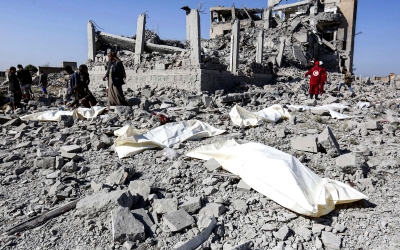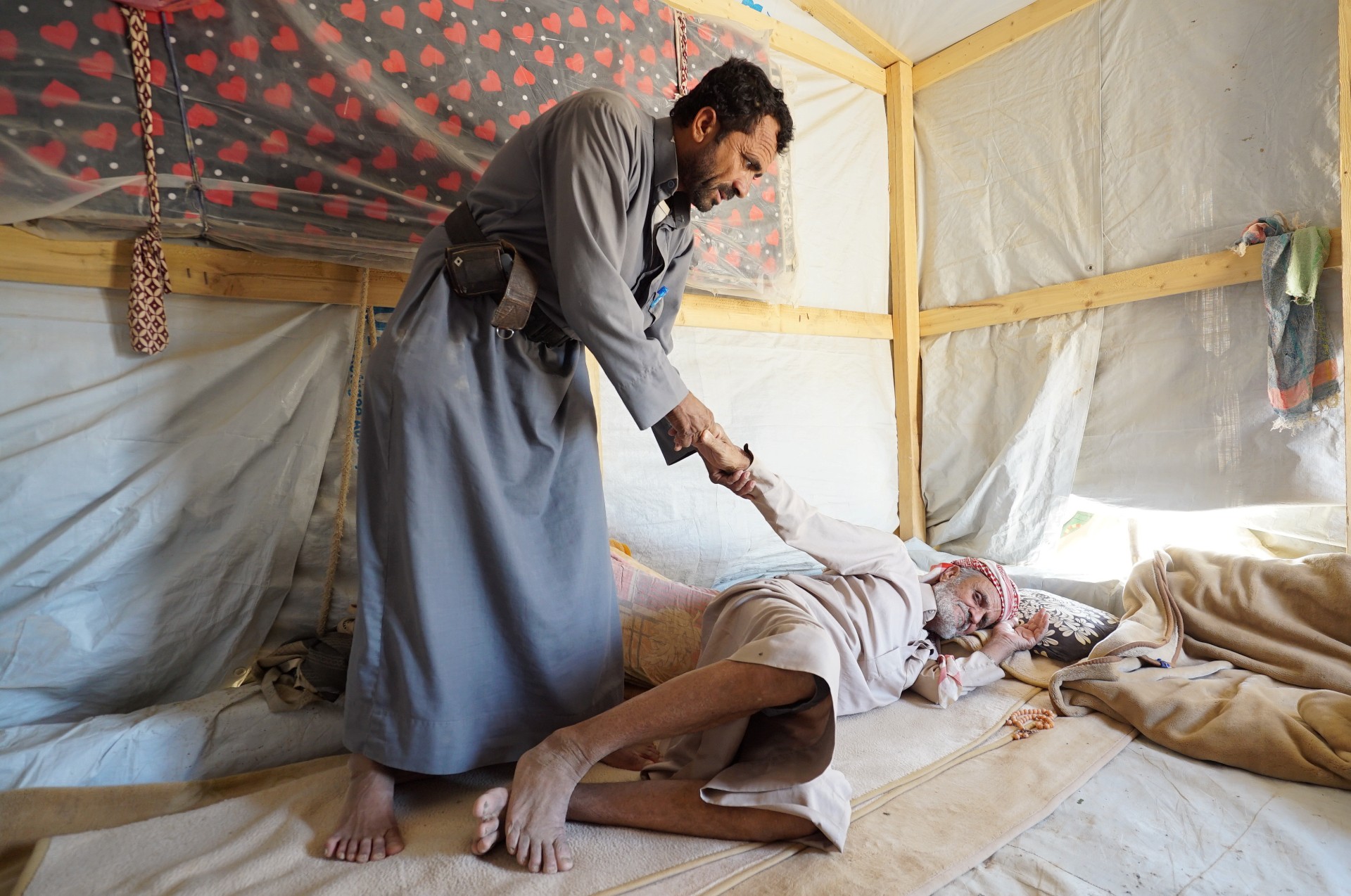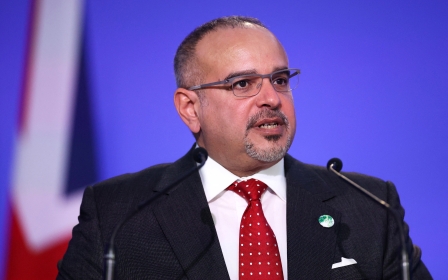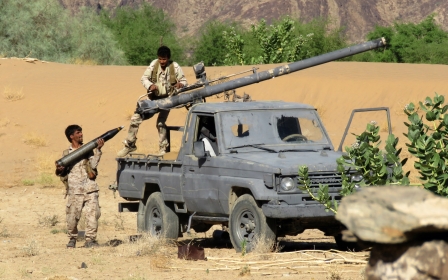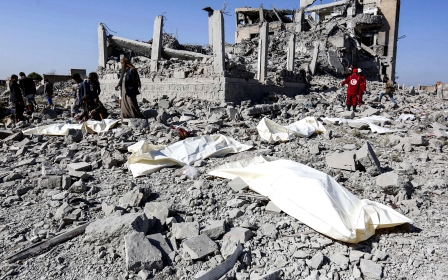Yemen: Ferocious Marib fighting engulfs residential areas as Houthis advance
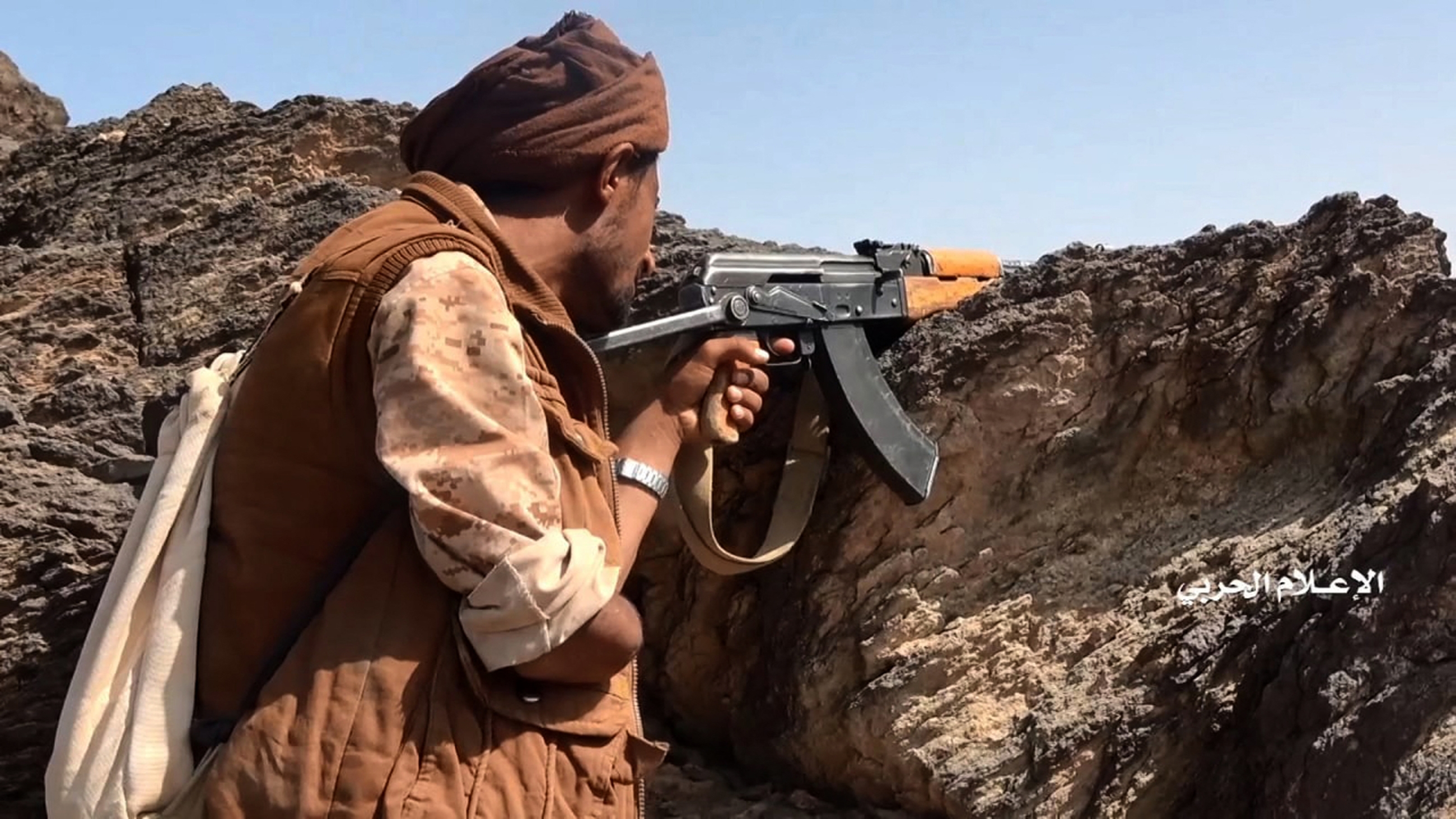
The father of five children, Salem al-Muradi was born and spent his whole life in a village in Marib’s al-Juba district, making a living as a daily worker, either building houses or working on farms.
He never thought about leaving his village. But as battles between Houthi rebels and pro-government forces in al-Juba moved closer and closer to his home, al-Muradi and his family were forced to move to safer territory.
“We have been hearing the fighting for around two months, but we didn’t flee as it is difficult for people to leave their homes. Two weeks ago the Houthis advanced towards us and the fighting came nearer but also we didn’t flee,” he told Middle East Eye.
'Conflict doesn’t differ between civilian or fighter and when it moves to an area, families must flee'
- Salem al-Muradi, Marib resident
“Last Sunday, the Houthis advanced towards our village using all kinds of weapons, and they were targeting the area by missiles and shelling.”
Al-Muradi confirmed that there was no option at this point but to leave the area, heading in the direction of al-Nugea camp of displaced families, where many other fleeing families have ended up in recent months.
New MEE newsletter: Jerusalem Dispatch
Sign up to get the latest insights and analysis on Israel-Palestine, alongside Turkey Unpacked and other MEE newsletters
“The Houthis were advancing in a dramatic way so we left everything and fled on foot. Some were late to gather their belongings - those [that did] put themselves in danger and some of them were killed by missiles or shelling,” he said.
“Conflict doesn’t differ between civilian or fighter and when it moves to an area, families must flee.”
Al-Muradi told MEE that some families preferred to stay in their homes to protect their property. However, he feels as though this was a mistake, as those who remained quickly found themselves caught in the crossfire.
“Lives are more important than belongings, but many people don’t think well and they put themselves in danger,” he said. “Two days after our displacement, a neighbour arrived at the camp and told us that one of our neighbours was killed with his child inside their home.”
Bloodiest days
On Sunday, the Saudi-led coalition, which has been launching air strikes in support of the government against the Houthis since 2015, said that it had killed 138 Houthi rebels over the previous 24 hours in raids near Marib.
Despite these claims, which cannot be independently verified by MEE, the Iran-aligned rebels have continued their advance towards the city, the government's last remaining stronghold in the north of Yemen.
Al-Muradi also heard about the attack on a mosque and school in al-Juba district, in which reportedly at least 29 people were killed or injured after the area was struck by a Houthi ballistic missile attack.
“The frontlines are now in residential areas and the disaster is that there are casualities from civilians every day. The Houthis are advancing towards residential areas and definitely, there will be more civilian casualties in the coming days,” he said.
At least 29 people, many of them students, were killed or injured in the attack in Marib late on Sunday, according to a statement by Save the Children, which confirmed that October was the deadliest month for civilians so far this year in the province.
The statement said there were more than 54 incidents of armed violence that affected people in and around Marib in October, resulting in more than 119 casualties, including at least 23 deaths, of which at least five were children - more than double the number of casualties recorded in any other month this year.
“We are speechless when facing this level of horror witnessed by civilians in Yemen. The world needs to come together to make sure that civilians in Yemen do not continue to pay a heavy toll for the hostilities in the country,” said Save the Children’s country director for Yemen, Xavier Joubert.
Families have continued to arrive at al-Nugea camp, around 40 minutes outside Marib city, despite a severe lack of basic services. Aid organisations have also so far yet to arrive at the camp.
Out of four million displaced people in Yemen, an estimated one million are in Marib, and more than 55,000 have been displaced since September 2021.
Ready to flee
Abdullah, who preferred to give only his first name, has been on the move since 2016. He eventually returned to his original home in Sanaa's Nihm district, but fled again in January 2020. He described life in displacement as a “wasted life”.
"This is our life and this is the situation we live in, in addition to the other kinds of suffering like lack of food and basic services,” Abdullah told MEE.
“In Nihm, I didn’t flee with the first group but when I saw a neighbour killed in front of me by a shell, I decided to flee and since then I have fled four times as the Houthis are advancing towards Marib.”
Abdullah stated that usually they walk and hire a car for the nearest safe area and then this area becomes a new frontline, so they keep moving on towards Marib city.
“The last displacement was last Saturday from al-Juba to al-Nugea after the Houthis were targeting the area around the last camp,” he said. “After we fled the Houthis took over the area where we were, so I’m happy that I fled in the proper time.”
Abdullah said they weren’t comfortable in the new camp and hoped that aid organisations could help them to settle down and stay in an area far away from the fighting.
“In the beginning I was hoping to return to my home, but now I [have] lost hope and I only hope to settle down in a place where we don’t think about the next displacement," he said.
Some residents of Marib were terrified when they heard about the fighting in al-Juba and other areas, as civilians became casualties of the violence.
Sultan, a resident of Marib, confirmed that he would flee the city as soon as the fighting got near. He wasn't prepared to put himself or his family in danger.
“I heard that civilians in al-Juba fell victim of the fighting and it isn’t a populated area like the city,” he said. “If battles arrive in the city, I’m sure there will be a huge number of civilian victims."
Middle East Eye delivers independent and unrivalled coverage and analysis of the Middle East, North Africa and beyond. To learn more about republishing this content and the associated fees, please fill out this form. More about MEE can be found here.


